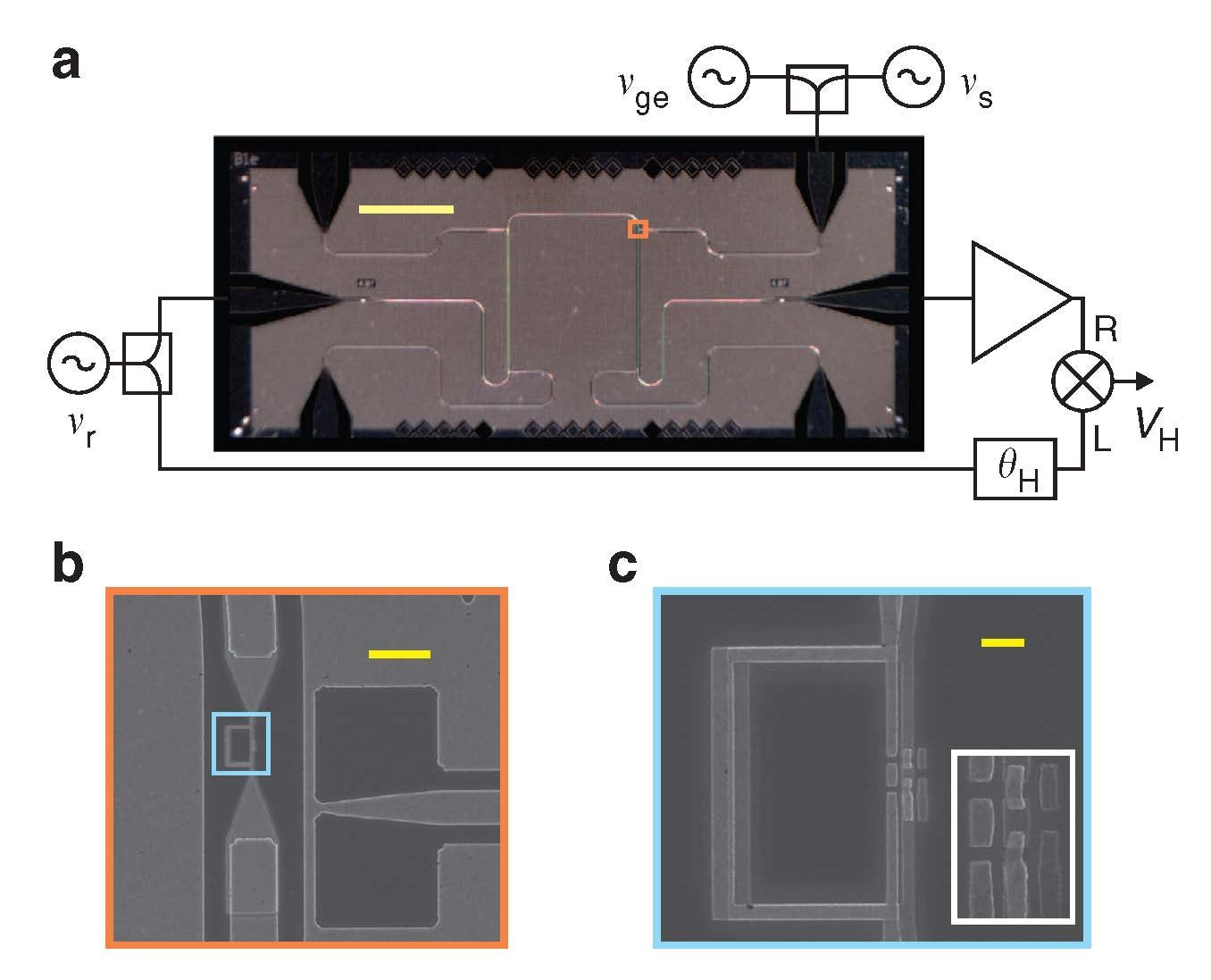Thursday, December 27, 2012
IQC researchers use a single quantum bit to create an exceptional quantum sensing detector for magnetic fields.

This result, published this week in Nature Communications, represents an important development in the field of quantum sensing research, where quantum systems are used to create better measurement devices. The IQC researchers created a quantum detector that is more sensitive than other measurement methods for magnetic fields that oscillate between tens of thousands to tens of millions of times each second.
The persistent current qubit can be used to explore the behaviour of quantum systems at very low temperatures, and it demonstrates the potential of artificial quantum systems for quantum sensing. Of his team's creation, Lupascu says that "two possible areas of application are the detection of electron spins and measurements of resonators." Magnetic field sensing is also important for a wide variety of applications including medical imaging, geological exploration, materials evaluation, and scanning probe microscopy.
Magnetometers have two main features – sensitivity and spatial resolution. Improvements to magnetometers have been limited in that improving one feature came at the expense of the other. Lupascu's quantum device is a step forward, achieving high sensitivity in a very small device. This team's persistent current qubit is able to detect magnetic fields as weak as a few picoTesla – less than 10 millions of the value of the Earth’s magnetic field (50 microTesla).